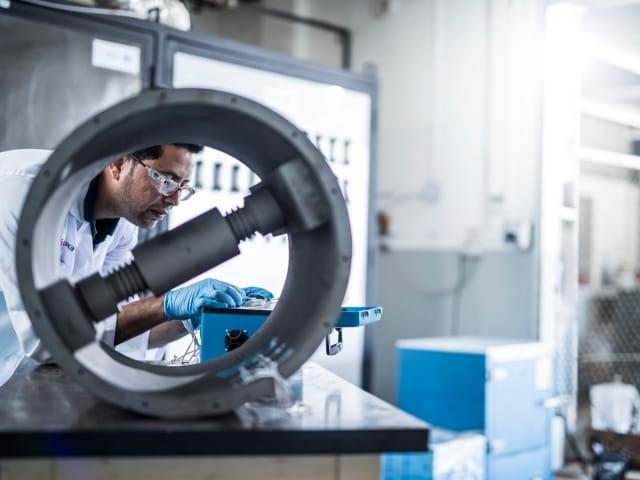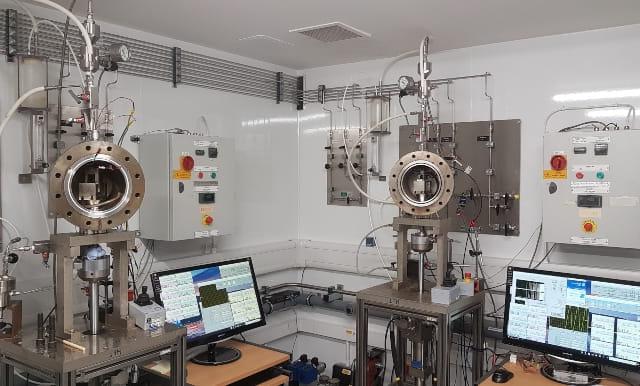Materials exposed to sour service environments containing wet H2S may face susceptibility to corrosion and cracking, potentially leading to catastrophic failure. Element offers comprehensive sour service corrosion testing for the Oil & Gas industry, utilizing both traditional and advanced methods including compliance with NACE MR0175/ISO 15156 standards. With our global expertise and state-of-the-art facilities, we ensure the integrity of materials, protecting you from corrosion-related failures.
What is Sour Service Corrosion Testing?
Sour service occurs when a substance being transported or stored in a vessel (such as pipework for oil and gas) has high levels of hydrogen sulfide (H2S) or sulfuric acid (H2S04). Hydrogen sulfide is often introduced through biochemical processes, where microorganisms consume sulfates, releasing hydrogen sulfide which can then oxidize into sulfuric acid, causing corrosion.
Through sour service corrosion (SSC) testing, materials which come into contact with these sour environments are evaluated for vulnerability to corrosion and cracking. These tests are important for ensuring the safety and durability of oil and gas pipelines and storage vessels, and for identifying the most suitable materials and corrosion inhibitors for use in such corrosive environments. The testing methods and standards applied in sour service corrosion testing adhere to industry standards like NACE MR0175 / ISO 15156.
Sour service testing may be required on your products/materials for environment containing wet H2S. Materials exposed to sour service environments in the Oil & Gas industry may face susceptibility to corrosion and cracking, potentially leading to catastrophic failure.
Key Benefits of Sour Service Corrosion Testing at Element
- Comprehensive Evaluation: Our testing offers an in-depth analysis into the performance of materials and how they degrade in chemically hostile sour gas environments, plus helps you to interpret the complex data and make informed decisions about next steps.
- Prevents Catastrophic Failures: Identifies vulnerabilities to corrosion and cracking, ensuring equipment reliability and safety in harsh environments.
- Expert Assistance: We provide expert guidance on meeting international standards such as NACE MR0175/ISO 15156, simplifying the compliance process and ensuring you meet the regulatory standards.
- Global Reach: With cutting-edge facilities and industry-leading specialists worldwide, we deliver consistent, reliable testing services across regions.
- Time and Cost Savings: By preventing failures, our testing saves both time and money, enhancing operational efficiency and reducing downtime.
Prevent Corrosion and Cracking Risks
Materials exposed to sour service environments face the constant threat of corrosion and cracking, which could lead to equipment failure and jeopardize safety. Sour service corrosion testing is crucial in identifying these vulnerabilities, as it simulates the aggressive conditions found in industries like oil and gas. By subjecting materials to sour gases like hydrogen sulfide, we accurately replicate real-world scenarios, allowing us to pinpoint weaknesses and potential failure points. This comprehensive evaluation ensures the reliability and integrity of materials across various industries, safeguarding operations and mitigating risks associated with corrosion-related failures.
Simplify Compliance
Navigating international standards such as NACE MR0175/ISO 15156 can be daunting and time-consuming. Our expertise and guidance streamline the compliance process, saving valuable time and resources while guaranteeing regulatory adherence. Our NACE Engaged Experts provide comprehensive support, offering advice and guidance on how to interpret and apply these standards effectively to your testing programs. By partnering with us, you can navigate the complexities of compliance with confidence, ensuring that your materials meet the necessary regulatory requirements while minimizing delays and optimizing project timelines.
Sour Service Corrosion Research and Development
Our Sour Gas Testing Capabilities
- World class scale; sour service laboratories in the UK, US, Europe, Middle East and Asia
- SSC testing at ambient temperature
- Full ring testing
- SOHIC testing
- Stress Corrosion Cracking (SCC), Pitting and Crevice tests in High Pressure High Temperature (HPHT) environments up to 250 °C and 300 bar
- Slow Strain Rate (SSRT) and Rippled Slow Strain Rate (RSSR) testing
- Customer-specific services; advice and guidance, consultancy and bespoke testing programs
Why Choose Element?
Element's extensive network of laboratories worldwide offers a comprehensive suite of tests to qualify your materials according to MR0175/ISO 15156 standards. Beyond testing, our seasoned experts provide invaluable guidance on standard interpretation and test program selection, ensuring the utmost reliability and integrity of your materials.
Find out more about Element and our credentials within the testing, inspection, and certification industry. For more information about how we perform Sour Service Testing, or to request a quote, contact us today.
Fracture Mechanics in Sour Service: Some Characterization Tests on SENT and SENB Specimen
This article provides better understanding of how the SENT test technique influences fracture toughness of pipelines in sour service environments.
Read MorePredicting component life with corrosion modeling
Erosion within oil and gas pipelines is a serious problem. Corrosion modeling using the Computational Fluid Dynamic method can accurately predict the location of burn-throughs.
Read MoreRelated Services
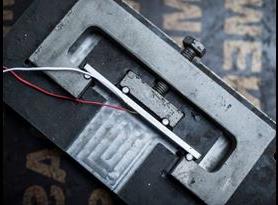
Stress Corrosion Cracking (SCC) Testing
Element’s Stress Corrosion Cracking (SCC) testing evaluates the susceptibility of metals to cracking failure under tensile stress and corrosion.
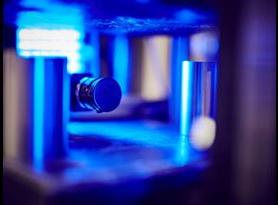
Engineering Critical Assessment (ECA) Services
Element provides Engineering Critical Assessment (ECA) to determine if a flaw in welded structures is safe from brittle fracture, fatigue, or creep.
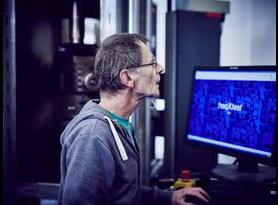
Corrosion Inhibitor Testing
Element’s corrosion inhibitor testing experts select the most suitable corrosion inhibitor to protect your assets and extend their life span within the energy industry.
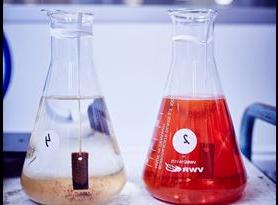
Corrosion Testing Services
Find out about Elements extensive corrosion testing expertise in the Energy industry across a global network of laboratories.
